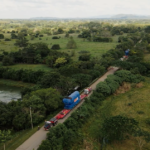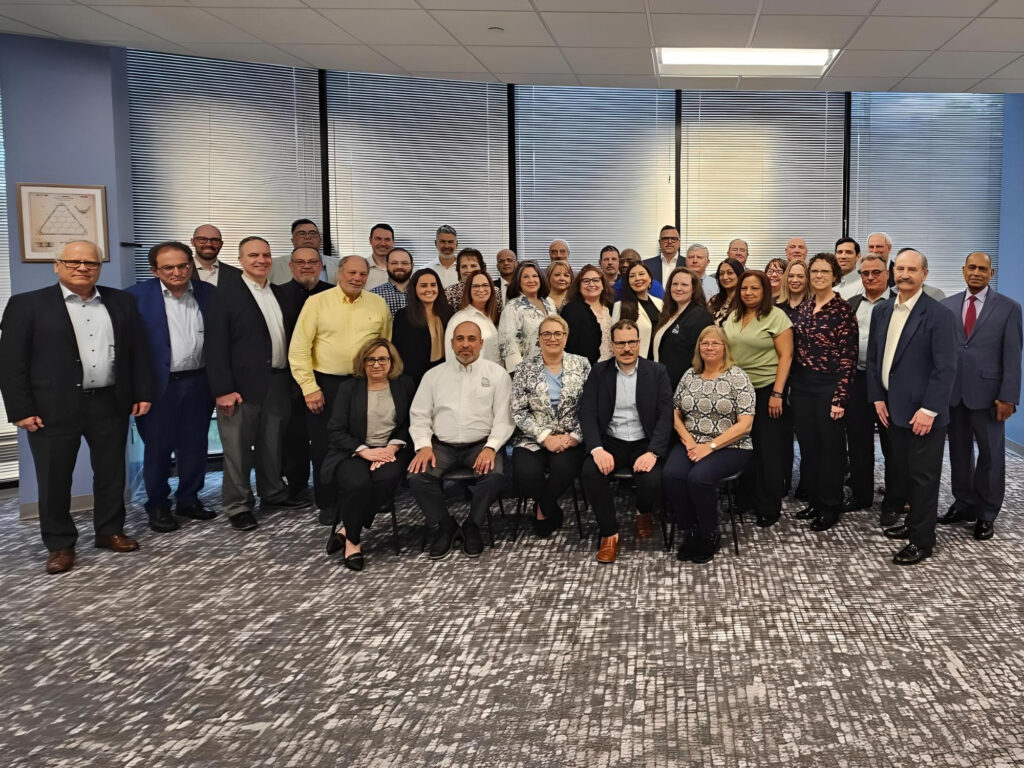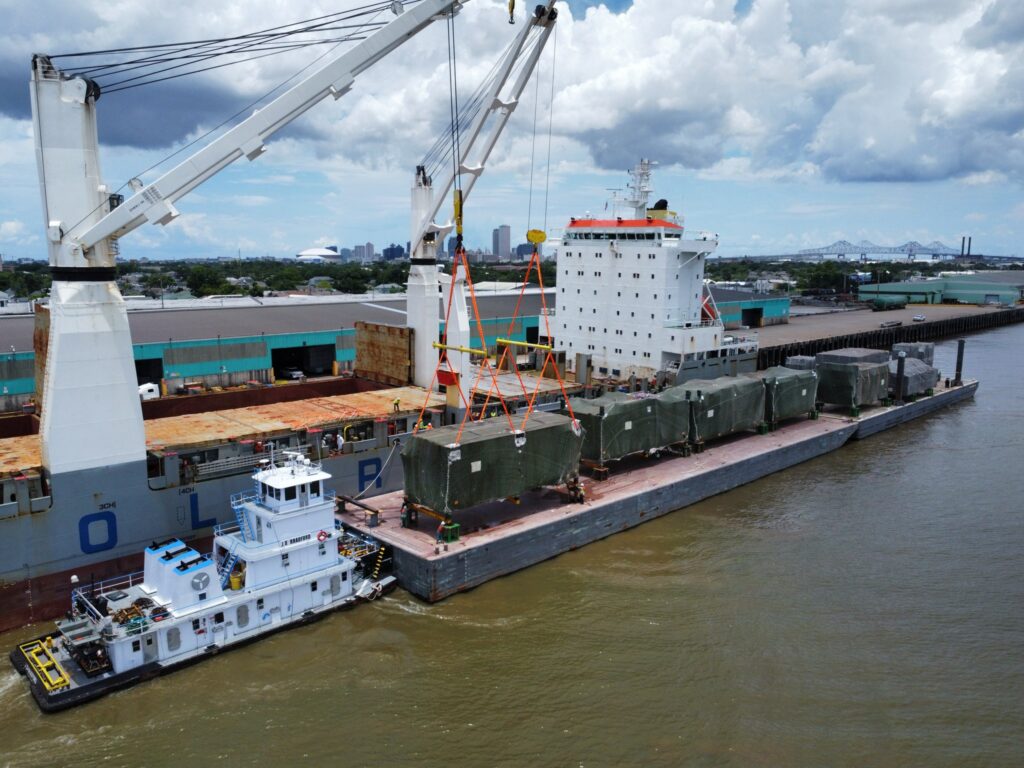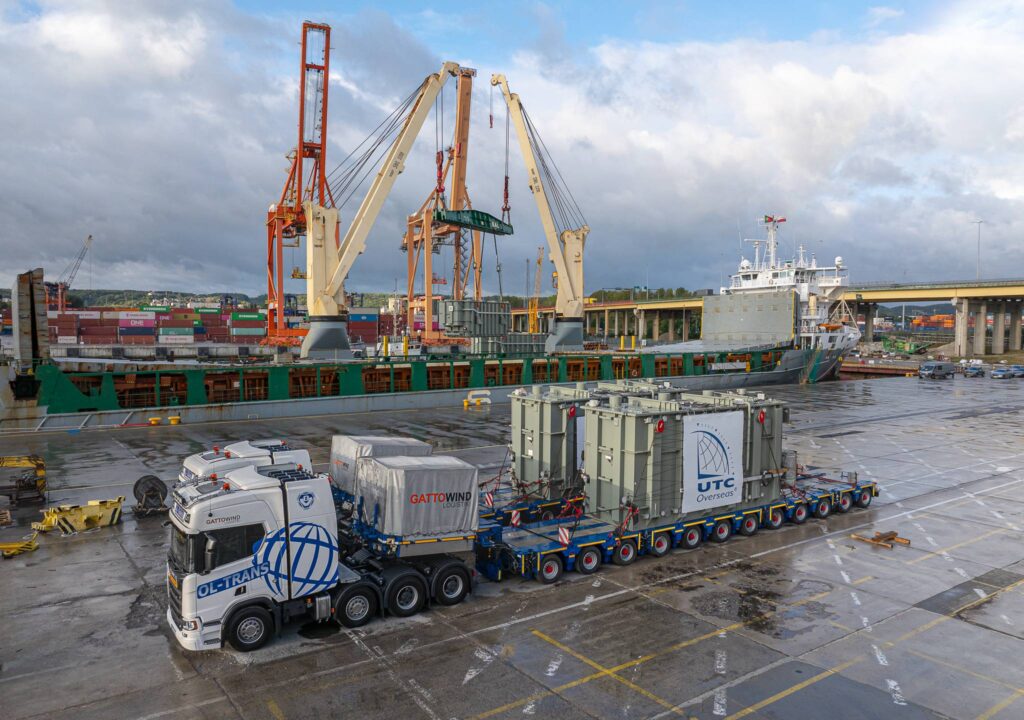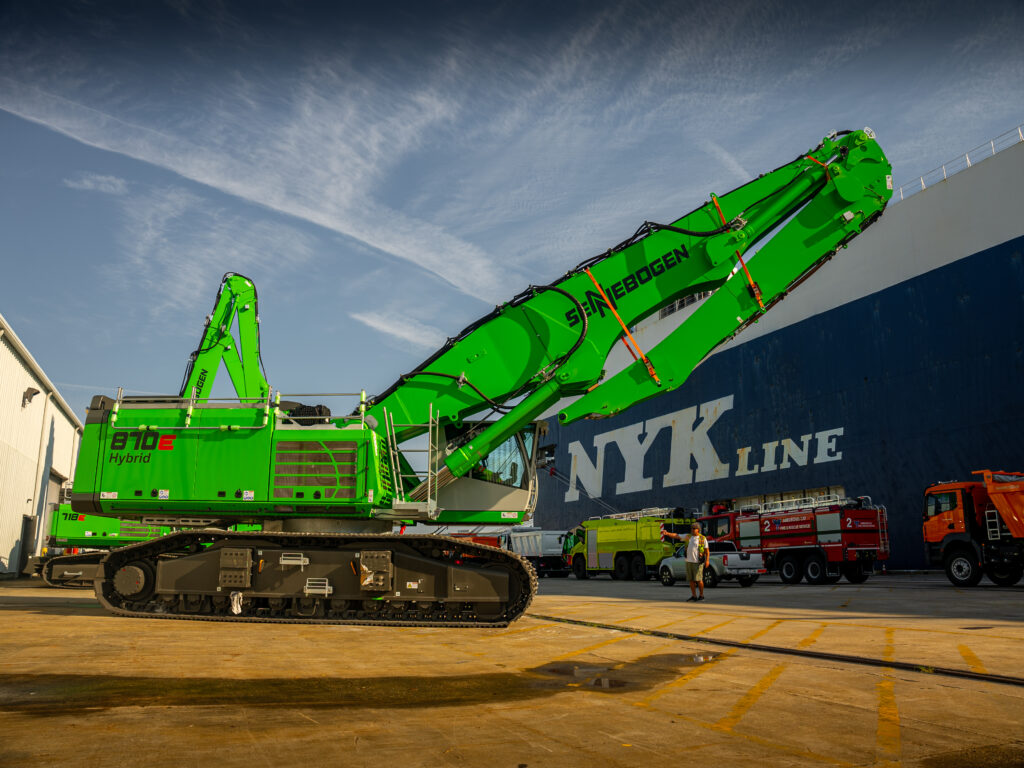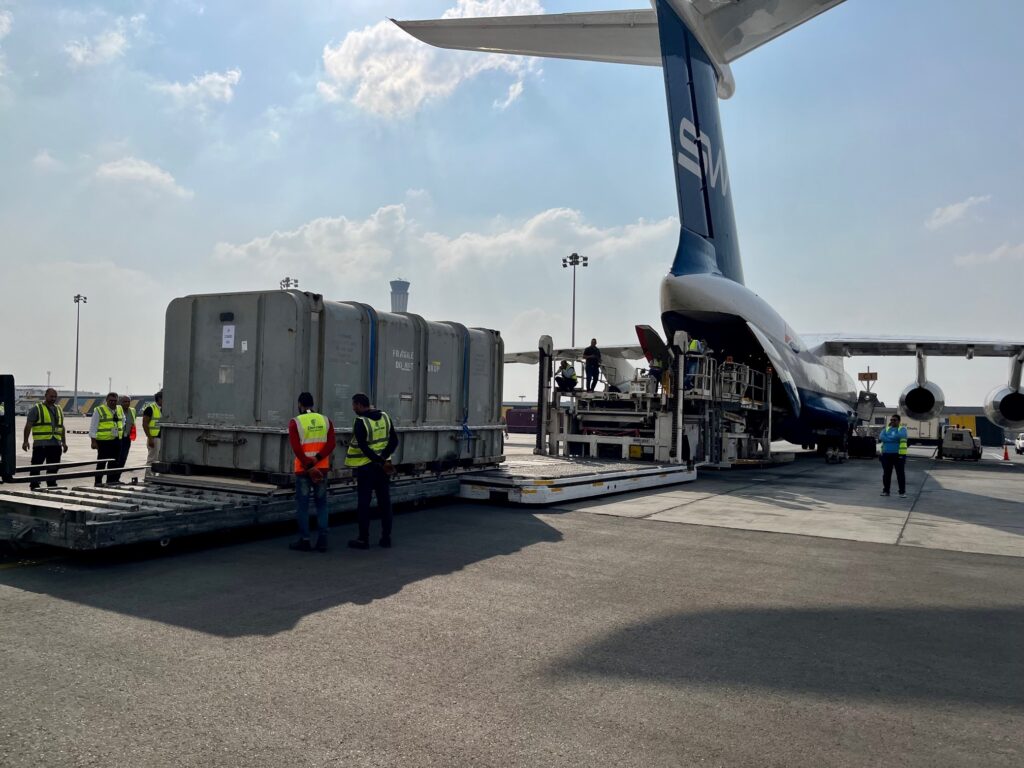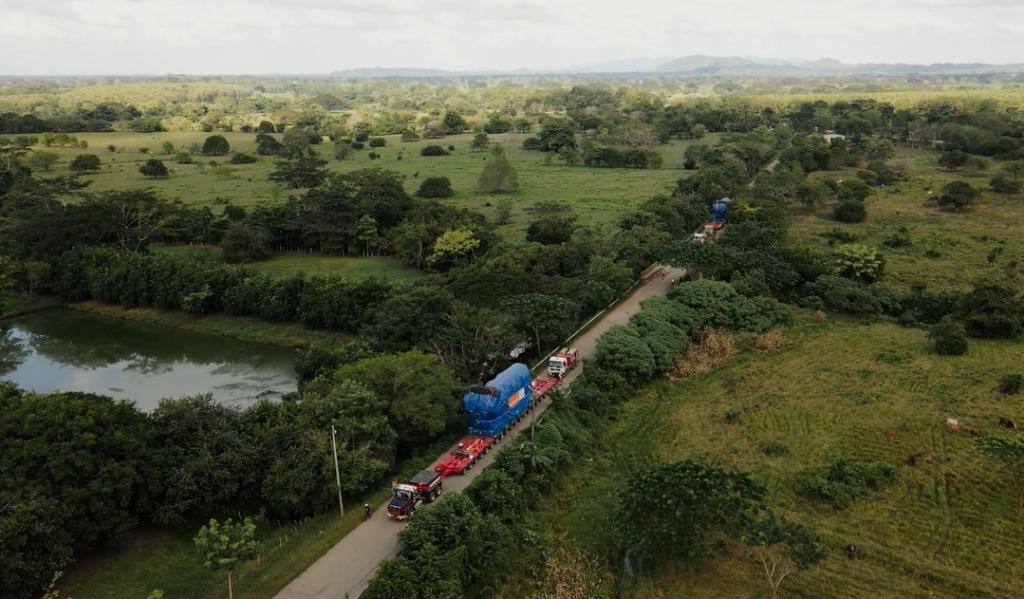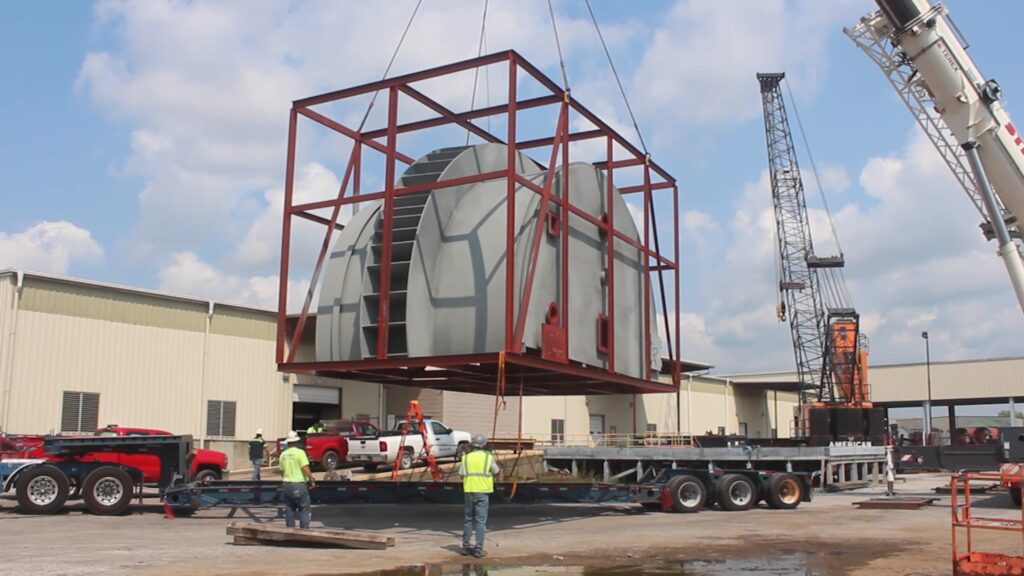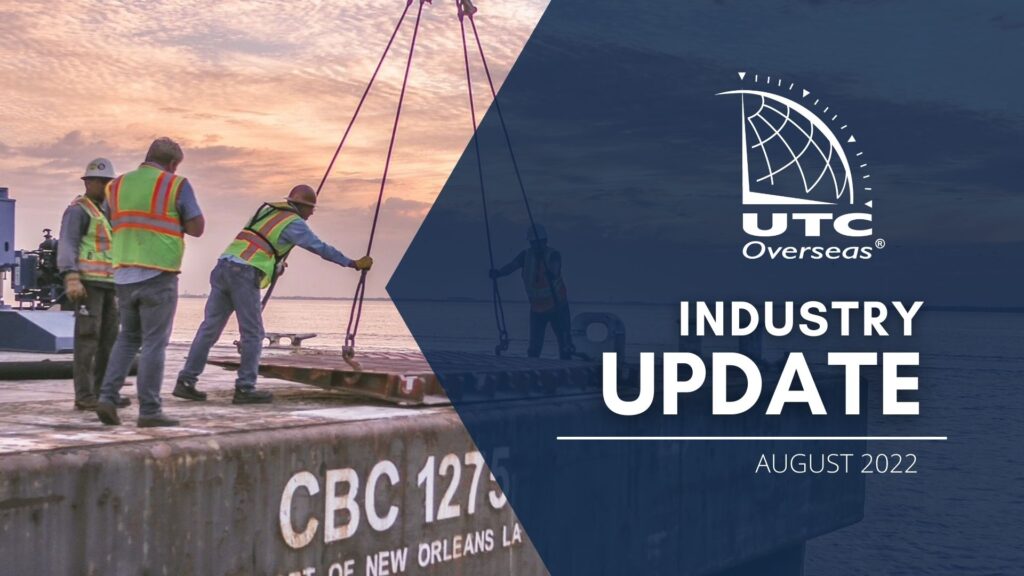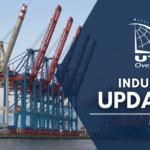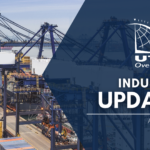UTC Sets New Heavylift Record
utc overcomes mounting challenges for greenfield project in colombia
UTC's global heavy lift experts coordinated the transportation of the heaviest cargo ever mobilized on Colombian roads.
Over the last two years, a team of UTC Overseas professionals has been transporting the equipment needed to operate the new El Tesorito power plant in Cordoba Province, Colombia. Having worked on many greenfield projects before, these specialists had the knowledge, experience, and contacts to arrange ocean transport, loading and unloading, port manipulation, storage, on-carriage, and discharge onto the foundation.
Diligent planning and precise execution were vital in carrying out the operation
UTC’s skilled crew took care of every detail, locating the port nearest the job site so the motors could ship fully assembled, saving the customer considerable time and money. The equipment would travel to the Port of Tolú, a breakbulk and project cargo facility with the capacity and infrastructure to handle the equipment efficiently.
Starting out as breakbulk cargo on multi-purpose vessels, the equipment began the first leg of the journey. The first shipment contained 11 generators weighing 72 tons each, along with 8,845 cubic meters of additional equipment. The second vessel carried three transformers, 97 tons each, and 460 cubic meters of accessories. The third vessel transported 11 assembled engines which were 300 tons each and six meters high. The oversized and overweight cargo originated in Brazil, Bolivia, the U.S., Finland, Italy, and Mexico. In addition to the equipment, there were over 400 containers of related material.
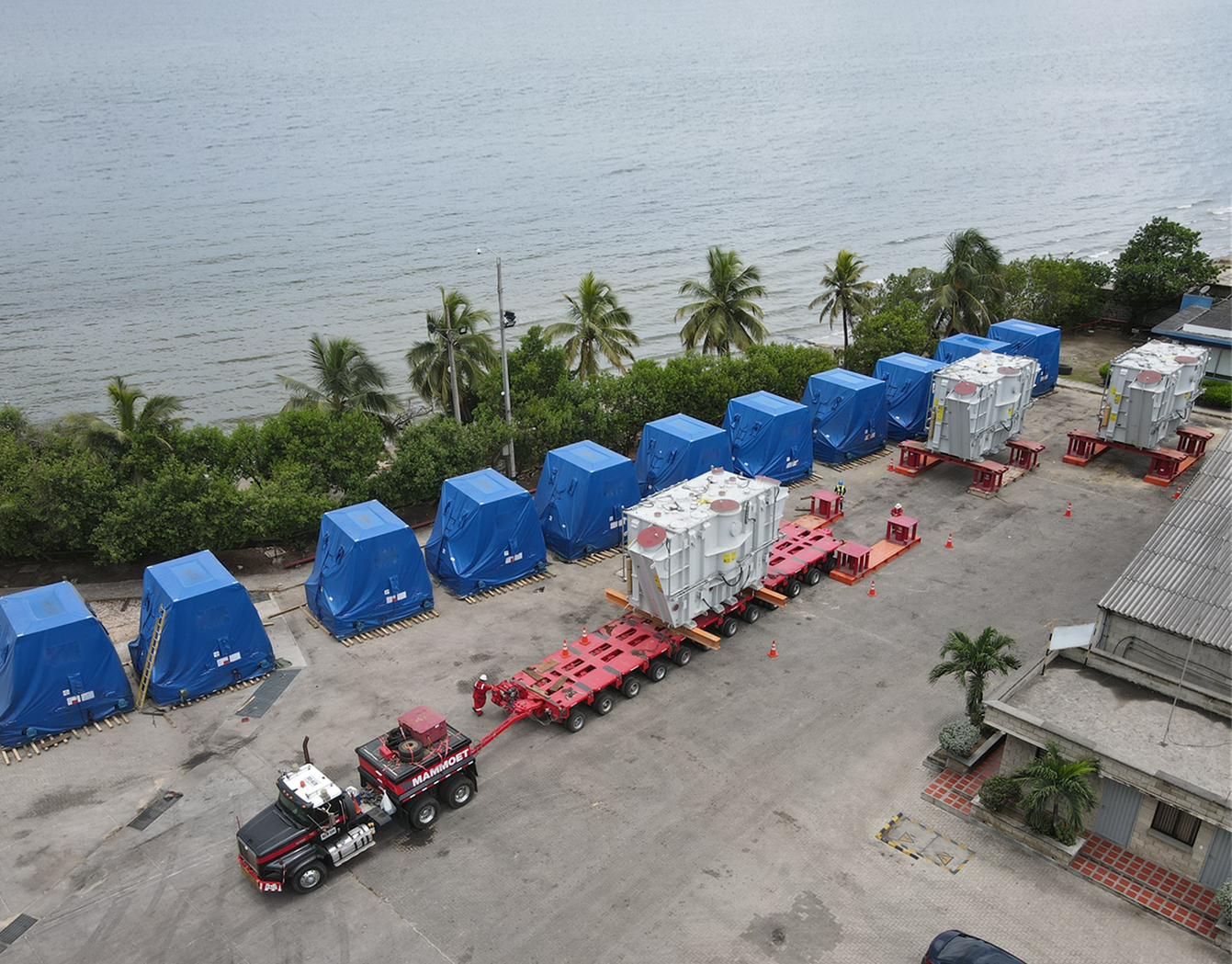
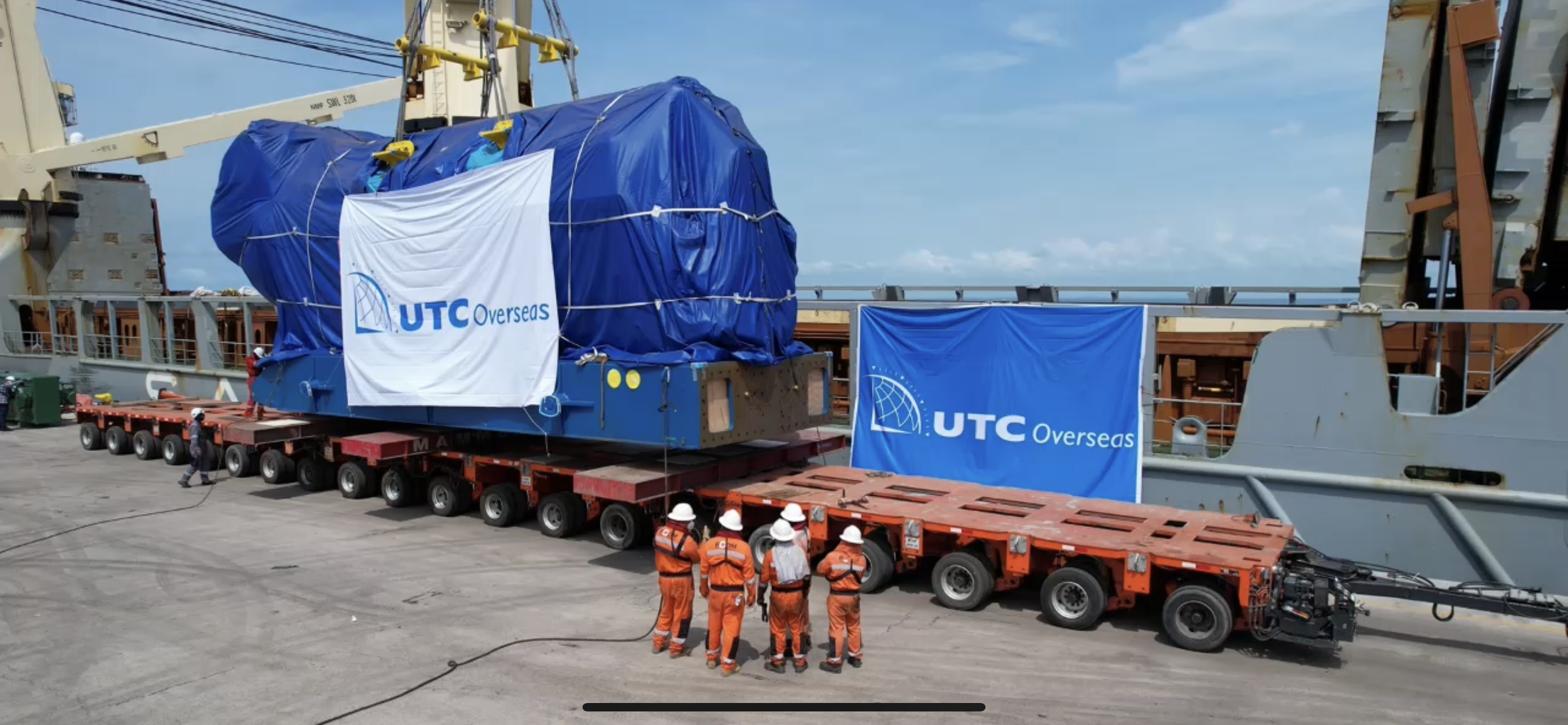
Challenges Mounting: Adverse weather, pandemic supply chain disruptions & holiday chaos factor in
With any large-scale EPC contract, there are many challenges to overcome, but this one was compounded by the Christmas and New Year holidays, the pandemic, and supply chain disruptions. A host of new, unfamiliar situations arose, such as port closings, labor shortages, and strict distancing and sanitary procedures. Weather also contributed as much of this move occurred during the rainy season.
Despite advance planning and extensive road surveys, unannounced road construction began on the planned route to the job site, so alternate plans had to be devised quickly. Security measures were developed and implemented for the new route ensuring safe passage for the personnel and equipment in the caravans.
The available bridge that led to the construction site could not hold the weight of the assembled units. The bridge needed reinforcing to allow safe passage. Due to excessive rain, the roads were muddy, and the river created high currents. The elevated water levels made excavation difficult, so a dam was constructed to impede the water flow. This type of work requires environmental licenses stipulating that everything must be returned to its natural state when work is completed. Due to this, the bridge reinforcements were deconstructed after the final equipment delivery.
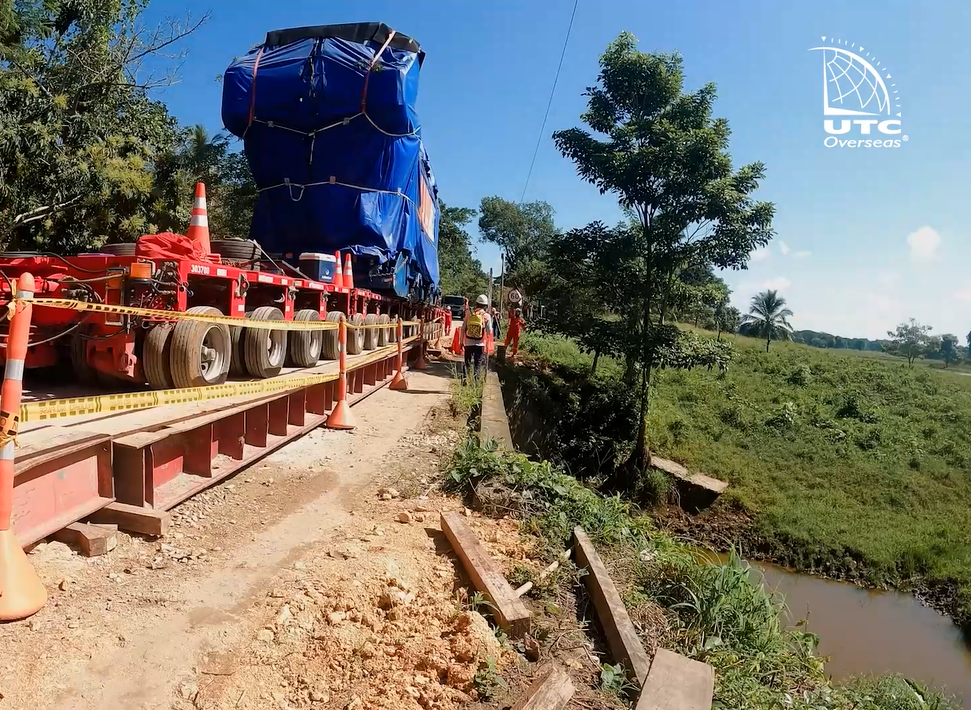
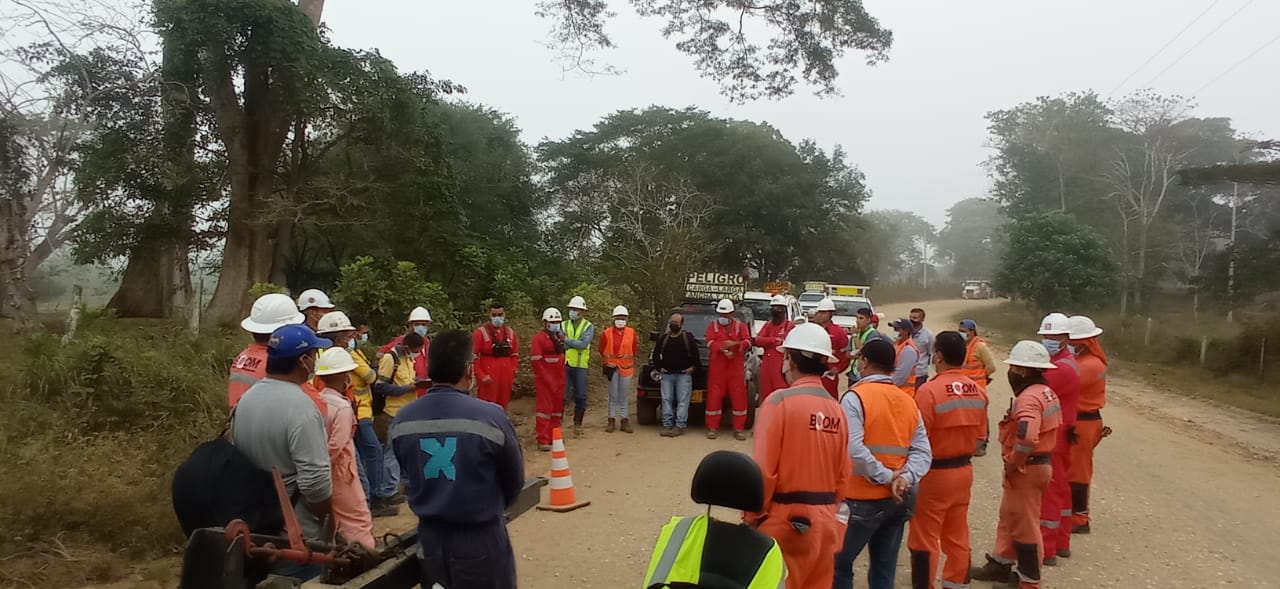
Last-mile transport: Local regulations & outreach
Abiding by local laws and regulations is essential when completing any project. This one went one step beyond, though. UTC was traversing rural communities with limited resources. Electricity had to be taken off-line for six-hour stretches each time a caravan of trucks moved through one of the towns. It was a hard sell to win over the locals and garner support for the project. The impact on the region was significant, but the long-term improvements would more than make up for the temporary disruptions.
UTC professionals became diplomats, meeting and discussing concerns with the local communities. Ignacio Benedetti, UTC Regional Director West Coast Latam, recounts some of the meetings. “This was a socially sensitive project. Power was interrupted as lines were moved to allow the large pieces to travel through towns on national roads. Generator backup did not exist, meaning residents and businesses were without power and water for long stretches - this happened multiple times over the course of a few months. We met with community leaders, business owners, and utility companies to explain the benefits of the project and the government’s investment in improving energy services. We shared an explanatory video to educate all concerned parties on the benefits of building up power resources in the area. To further complicate the situation, election training took place during one span of the project, and alternative energy sources had to be supplied so the training could be completed in time for election day.”

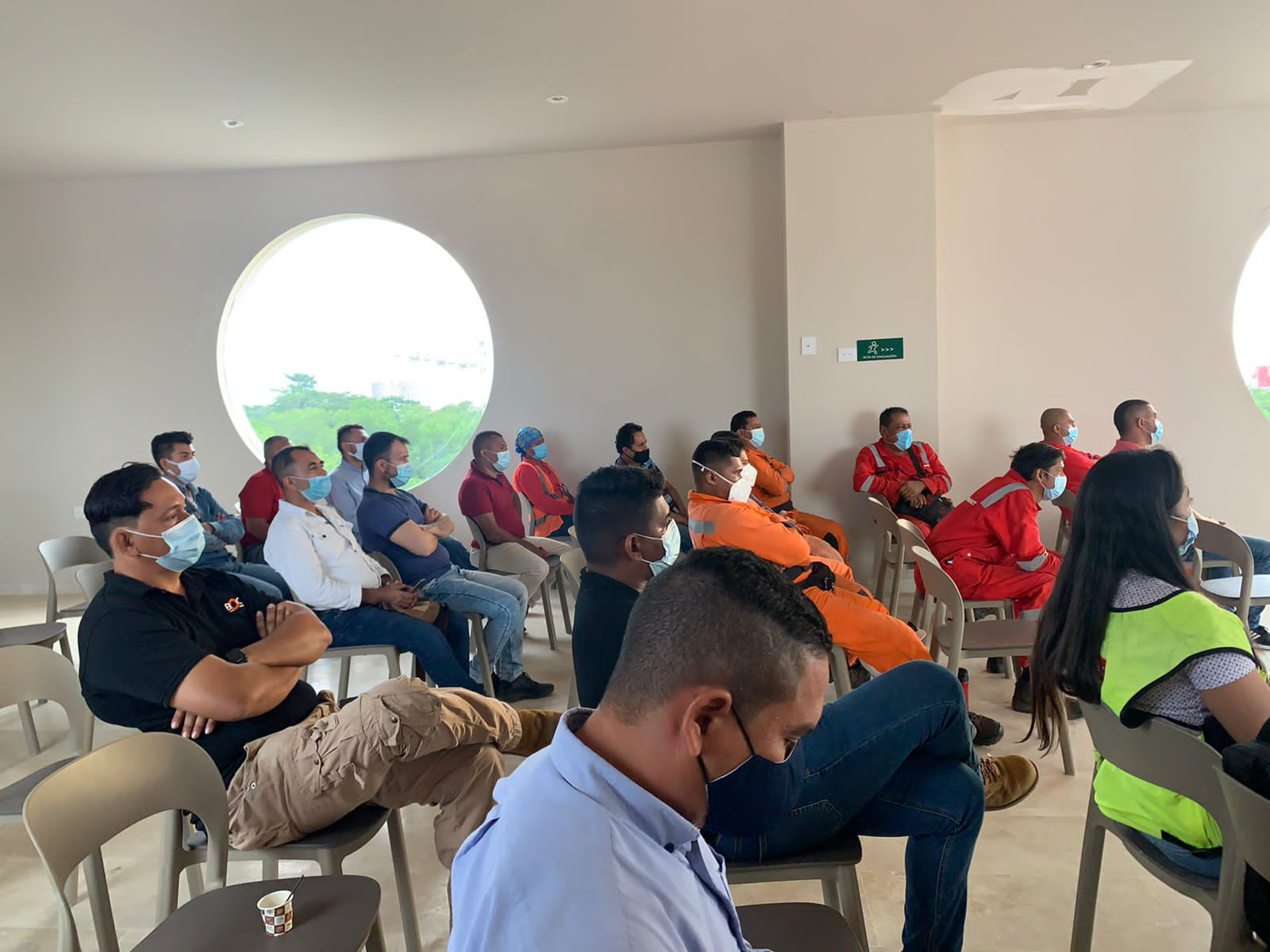
Breaking records to support energy transition to renewables
“The weight of the units was massive and set a new record for the heaviest pieces mobilized on Colombian roads. To receive the necessary transport permits, bridge and infrastructure impact studies were required, and a route study and pavement calculations had to be completed to ensure weight compliance guidelines outlined in the permits were not exceeded. A thorough traffic control plan was also required, as was coordination with utility companies responsible for lifting the power, internet, and phone lines in the towns along the route. Equipment moved using Prime Movers. Their large turning radius precluded them from entering the facility, so the oversized equipment was transferred to SPMT to reach the foundations,” says Jorge Duarte, UTC Project Manager.
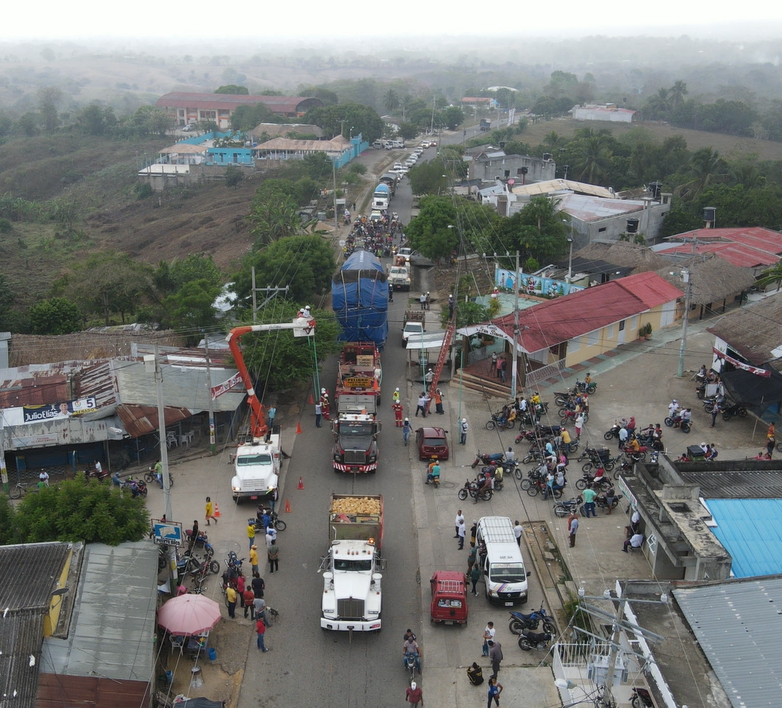
El Tesorito will provide critical grid balancing capacity to supplement intermittent energy derived from renewable sources such as solar and wind and help the grid cope with varying weather conditions. In case of a shortage, it will also be available to provide backup power. It is an important project to support the energy grid in the region. The plant complies with strict environmental regulations and creates operational and maintenance jobs for the local population in this rural region.
UTC’s teams of experts successfully handled the myriad of obstacles that presented themselves throughout the execution of the project overcoming the challenges and delivering on time.


